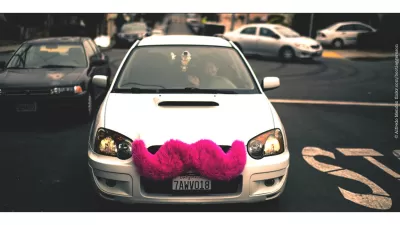Two recent studies find evidence of a powerful "neighborhood effect" for economic mobility—especially on the incomes of blue collar and service workers as compared to knowledge and creative workers.

Richard Florida shares news of two recent studies that explain the "neighborhood effect":
"The first [PDF], by Princeton University sociologist Douglas Massey and Jonathan Rothwell, an economist with the Brookings Institution’s Metropolitan Policy Program, examines how the neighborhood in which one lives for the first 16 years of life affects future income between the ages of 30 and 44."
"A second study [PDF] by my Martin Prosperity Institute colleagues Charlotta Mellander, Kevin Stolarick and José Lobo examines how neighborhood location affects the money people make. The study looks at the effects of residential neighborhoods and workplace neighborhoods on individuals’ incomes in Sweden between 2002 and 2011."
Florida details the findings and implications of each of the studies as well as summing up their importance thusly: "This work is essential to understanding why certain places grow while others do not, and how the powerful divides and segregations within our cities can and will echo into the future."
FULL STORY: How Your Neighborhood Affects Your Paycheck

Planetizen Federal Action Tracker
A weekly monitor of how Trump’s orders and actions are impacting planners and planning in America.

San Francisco's School District Spent $105M To Build Affordable Housing for Teachers — And That's Just the Beginning
SFUSD joins a growing list of school districts using their land holdings to address housing affordability challenges faced by their own employees.

The Tiny, Adorable $7,000 Car Turning Japan Onto EVs
The single seat Mibot charges from a regular plug as quickly as an iPad, and is about half the price of an average EV.

Seattle's Plan for Adopting Driverless Cars
Equity, safety, accessibility and affordability are front of mind as the city prepares for robotaxis and other autonomous vehicles.

As Trump Phases Out FEMA, Is It Time to Flee the Floodplains?
With less federal funding available for disaster relief efforts, the need to relocate at-risk communities is more urgent than ever.

With Protected Lanes, 460% More People Commute by Bike
For those needing more ammo, more data proving what we already knew is here.
Urban Design for Planners 1: Software Tools
This six-course series explores essential urban design concepts using open source software and equips planners with the tools they need to participate fully in the urban design process.
Planning for Universal Design
Learn the tools for implementing Universal Design in planning regulations.
Smith Gee Studio
City of Charlotte
City of Camden Redevelopment Agency
City of Astoria
Transportation Research & Education Center (TREC) at Portland State University
US High Speed Rail Association
City of Camden Redevelopment Agency
Municipality of Princeton (NJ)





























